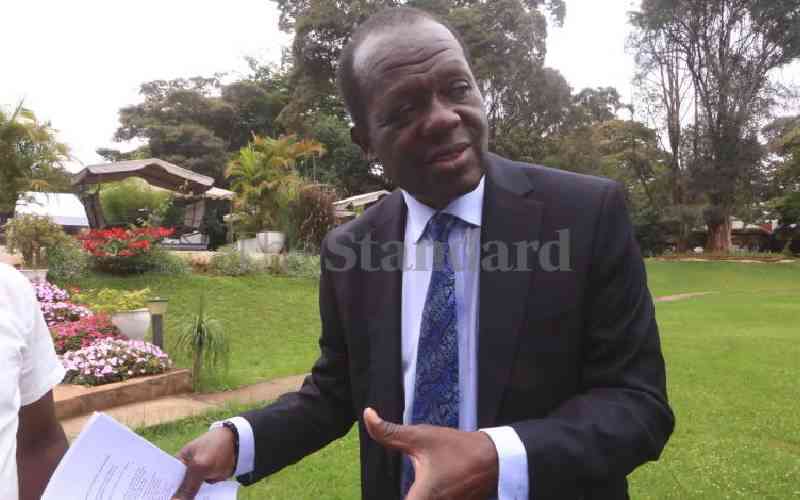×
The Standard e-Paper
Fearless, Trusted News

The Supreme Court has dealt former Jubilee Secretary General Raphael Tuju a major blow after an entire Bench withdrew from a case challenging the enforcement of a Sh1.9 billion loan judgement.
Tuju had filed a case challenging the June 19, 2019 UK court declaration that he pays the East Africa Development Bank the Sh1.9 billion loan.